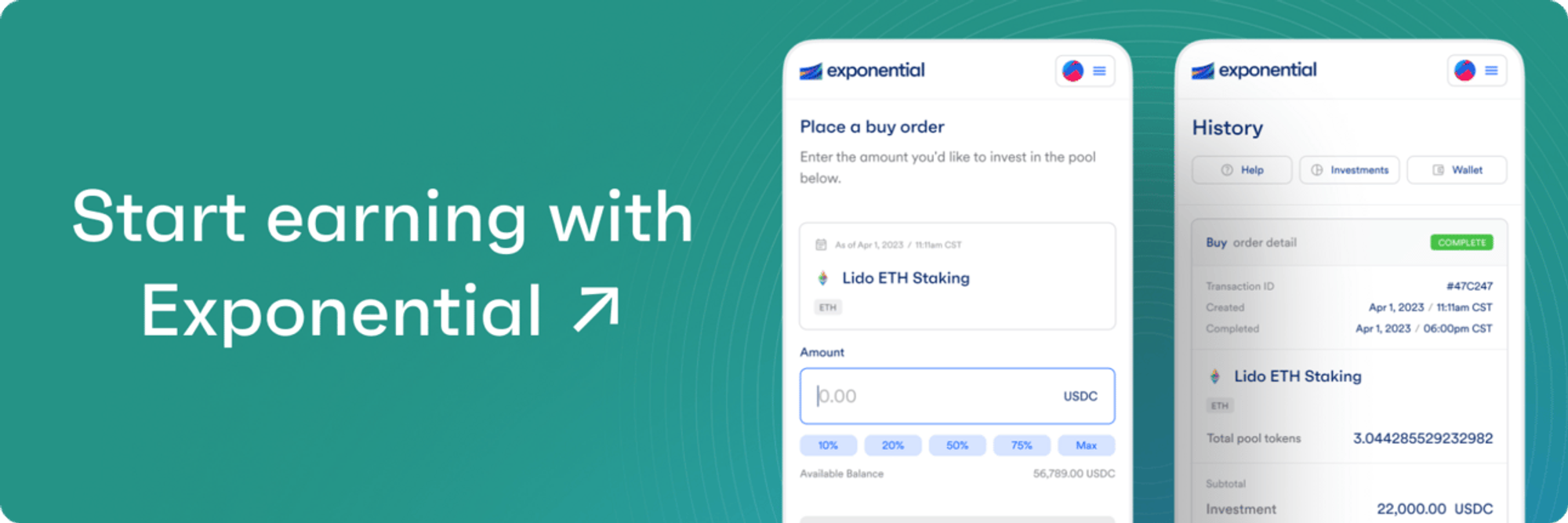Hey Edge readers,
Gas prices are surging as memecoin mania continues and more Layer 2 rollups onboard users. The next major Ethereum upgrade, Cancun-Deneb (“Dencun”), is just a week away so we have all the details covered for you.
Here's what we're covering this week:
- 1, 2, 3…Dencun! 🏖️
What to expect from Dencun as a user.
- New Bitcoin ATH 🟠
Wormhole airdrop, Solana sees ATH trading, EigenLayer flips Aave.
Stay sharp. 🫡
– The Exponential team

Everything to know about Dencun
The upcoming Ethereum Cancun-Deneb (“Dencun”) upgrade is set to be deployed on mainnet on March 13. This upgrade aims to optimize gas fees and enhance network scalability through various Ethereum Improvement Proposals (EIPs), namely EIP-4844 for proto-danksharding. This is the blockchain network’s first step toward enabling its rollup-centric roadmap that will allow it to store data more efficiently and cheaply for Layer 2 rollups.
What is proto-danksharding?
EIP-4844, or proto-danksharding, aims to significantly enhance Ethereum’s scalability by introducing a new transaction type called data blobs. These blobs are temporary storage spaces attached to Ethereum blocks that allow additional data to be included in transactions, without directly interacting with the Ethereum Virtual Machine (EVM). The intent is to improve the network’s data availability solution for Layer 2 rollups as the transaction data is no longer posted to the Ethereum mainnet (Layer 1). Instead, they will exist on the beacon chain (consensus layer) and be stored for a limited period (2 weeks) such that all parties can verify the data.
How do Layer 2 rollups benefit?
Layer 2 rollups help scale Ethereum by processing transactions off-chain while preserving the security guarantees of the Ethereum mainnet. They are responsible for aggregating or bundling multiple transactions into a single compressed form. This compressed transaction data is then posted to mainnet so that anyone can access and verify that the data is correct. Rollups are cheaper since all the compute work is done off-chain, on the rollup, and not on mainnet.
However, rollups still need to pay for the data posted onto mainnet, and this cost is a function of how large the data is and the current L1 gas price. Currently, rollups batch data and post it on mainnet along with all other transaction types, where the data is recorded permanently. This means a spike in L1 gas fees will have a downstream impact on how much rollups need to pay, which ultimately impacts how much you pay as a L2 user. Posting transaction data to mainnet is one of the highest costs for rollups today, accounting for anywhere between 60-80%+ of L2 revenues!
Outlook post-Dencun
The end goal of all this is to make it cheaper to transact on Layer 2 rollups. Blob gas fees will follow a similar EIP-1559 pricing model where the price changes based on demand. More blobs mean prices increase, and less blobs mean prices decrease. By shifting to these data blobs, rollups will be less affected by activity on the Ethereum mainnet. For example, a spike in L1 gas fees due to a new NFT launch will not affect the blob fee market. The efficient handling of rollup data via blobs is expected to lower gas fees for L2 users, potentially lowering average gas fees to below $0.01.
Finally, rollups moving to data blobs should also have a positive impact on L1 gas fees. Today, rollup calldata accounts for about ~20% of all L1 gas usage. By moving all of this to blobs, less gas should be used overall on mainnet, thus leading to lower L1 gas fees. Say goodbye (hopefully) to high gas fees!

What type of pools would you like to invest in through Exponential?
Subscribe to participate in polls.

In the news
- Bitcoin briefly climbed above its all-time high amid spot ETF frenzy - Read
- Wormhole releases airdrop allocation to dedicated users - Read
- EigenLayer restaking platform flips Aave in TVL - Read
- Solana sets new all-time high trading record of $11 billion - Read
- Solana DeFi protocol Kamino sets airdrop for April - Read
- Bernstein analysts expect a big DeFi comeback due to real yields and more regulatory clarity - Read
